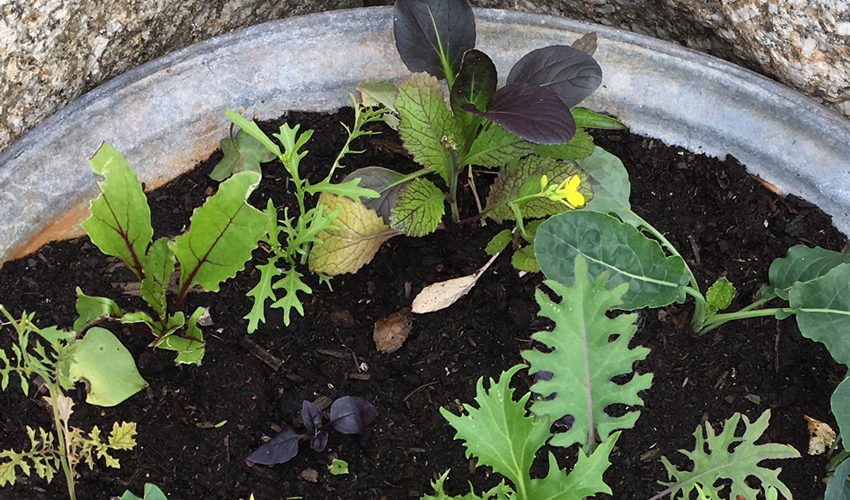Broccoli, cabbage, oriental leaves, lettuces, spinach and a few others can sometimes “bolt” unexpectedly at this time of year. Rather than producing lots of lovely leaves, they suddenly decide to produce flowers and seeds as quickly as they possibly can.
They do this because, for one reason or another, they are no longer able to thrive in their conditions, and so must get the next generation on the go before it’s too late. The reason is usually one of the below:
- A sudden cold spell – just as the plants were getting into the swing of things, a cold spell comes along and tricks them into thinking winter has arrived so they decide to get a wriggle on and get there seeds sown asap.
- A hot, dry spell – if the plants don’t get enough water, they can often bolt in response to perceived drought.
- Being transplanted – sometimes the shock of being moved from their seed tray to a bed can trigger a plant to bolt. This is often seen in oriental leaves like Pak Choi – it’s almost as if they have panicked, thinking that they won’t be able to survive in their new home, and so they put down seed instead of growing more leaves.
- A change in the number of daylight hours – most often seen in lettuces and spinach, longer days can trigger plants to bolt as well.
So, what can you do about it? Well, there are, as ever in life, some things that you can control and some things that you can’t. So it’s wise to pick your battles. You can’t avoid transplanting if you’ve decided to grow with Rocket Gardens of course, and you can’t change the weather, but you can help to create a consistent temperature and moisture content of the soil. This alleviates the problems of hot or cold spells. The way to do it is to add a good layer of mulch around vulnerable plants to keep them from drying out and will help to keep the soil a little warmer on cold days.
Another thing you can do is try again a little later – if, say, your Pak Choi plants bolted when planted out in May it doesn’t necessarily stand to reason that they would still bolt if planted out in June or July. In fact, because they are grown that much later in the season, they won’t experience such a big temperature change or difference in number of daylight hours and will be far less likely to bolt. There’s nothing wrong with planting them out earlier in the year, it’s luck of the draw as to the weather conditions, but it’s definitely worth giving it a second shot.

